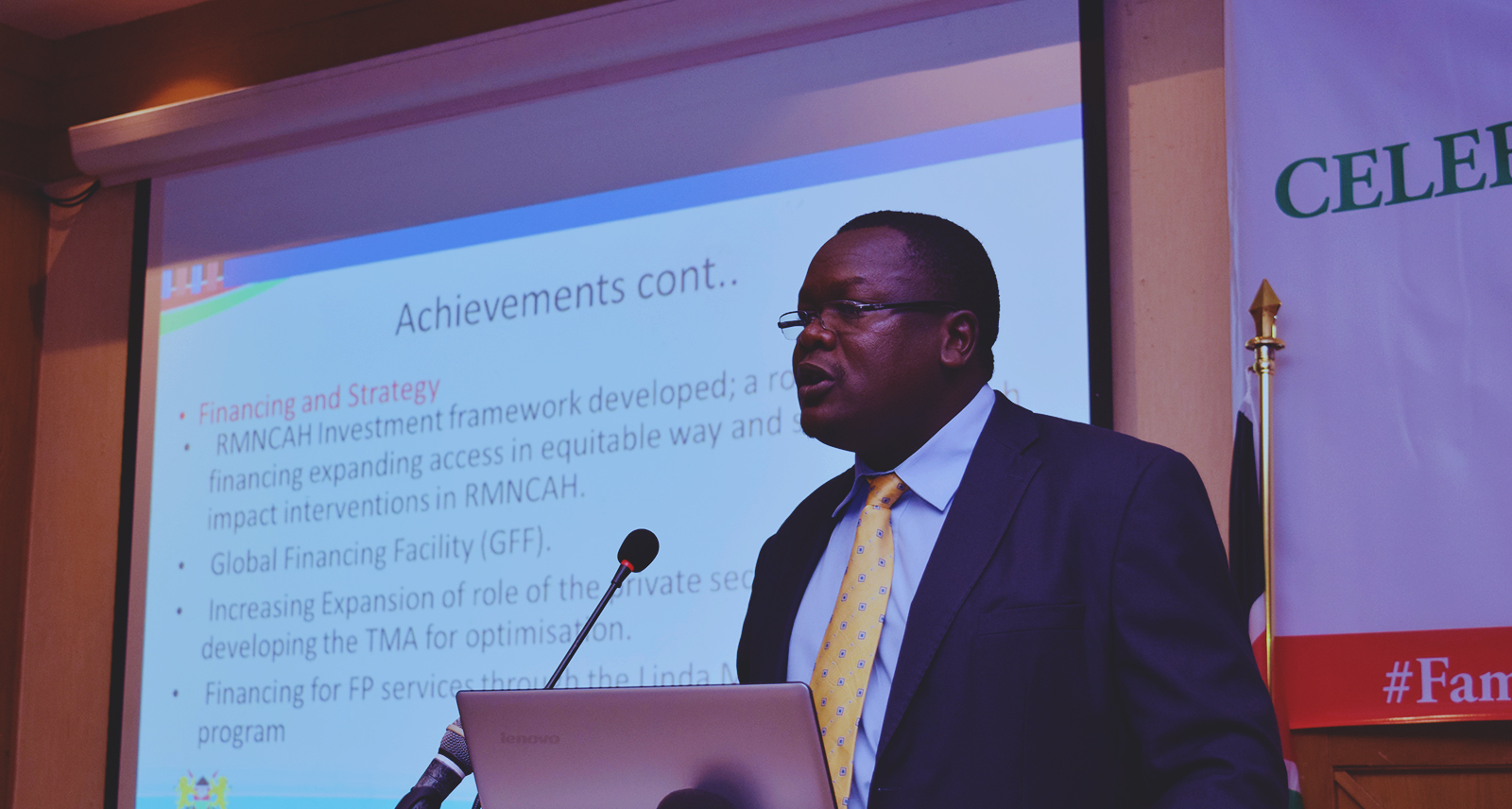Blogs

Tuesday, 11 July 2017 marked the 28th World Population Day. First observed in 1990 when the total global population was estimated at around 5 billion, the world’s population has today increased by more than 50 percent to stand at 7.6 billion people. 11 July has since then been observed as the day the United Nations rallies attention to the importance of population issues.
This year, the World Population Day, whose theme was Family Planning: Empowering People, Developing Nations, coincided with the 2017 Family Planning Summit held in London, United Kingdom. The FP Summit, which was first convened in 2012, brings together policymakers, donors, and advocates from around the world to discuss efforts to reach the FP 2020 goals and ensure that more women and girls around the world are able to plan their families and their futures through better access to voluntary modern FP methods and services. The forum is organised by the Bill and Melinda Gates Foundation and the UK Department for International Development (DFID).
In Kenya, stakeholders in population and development held a satellite event to observe the World Population Day celebrations as well as the FP Summit in Nairobi. The event was convened by the National Council for Population and Development (NCPD) in collaboration with the United Nations Population Fund (UNFPA). In attendance were various stakeholders and representatives from the Ministry of Health, DFID, Family Health Options Kenya (FHOK), the National Aids Control Council (NACC) and AFIDEP, to name a few.
Status of FP in Kenya
A key feature of the celebrations was a panel discussion on the status of FP in Kenya, the country’s progress towards its FP2020 commitments set at the 2012 London Summit, and recommendations on how to improve FP programmes in the country. The panel comprised Mr. Peter Nyakwara, the Director of Technical Services at NCPD, Dr. Joel Gondi, Head of the Reproductive and Maternal Health Services Unit (RHMSU) at the Ministry of Health, and Mr. Edward Marienga, the Executive Director at FHOK. The panel highlighted some of the major challenges facing the FP programme in Kenya as including: declining funding for FP services, changing donor priorities, and difficulties in improving efficiency in the value chain for FP services and in expanding access to adolescents, youth and marginalised segments of the population.
Nonetheless, Dr. Gondi emphasised that the government has renewed its commitment to the FP programme and pointed out some of the opportunities that would lead to this. These include increasing advocacy for political commitment and domestic financing for FP at the county level and the inclusion of FP services into the National Health Care Financing Strategy. The latter encompasses strengthening of the Free Maternity Services and the Linda Mama Initiative under the National Hospital Insurance Fund (NHIF), which ensures post-natal care for up to one year after delivery. The Ministry will also ensure sustained universal health coverage through the Total Market Approach (TMA), a framework that leverages on the full range of public, private, nonprofit, and donor resources in a country’s health system to sustainably, equitably, and efficiently increase access to priority health information, products, and services.
The newly-appointed UNFPA country representative, Dr. Ademola Olajide, lauded the Kenya government for enabling the country to not only achieve, but surpass the FP targets it committed to at the 2012 Family Planning Summit. Kenya has attained the targeted 56 percent prevalence rate in FP and contraception. However, Dr. Olajide cautioned that besides this progress, a significant number of women in sub-Saharan Africa still have closely-spaced births, a key contributor to the region’s high infant and child mortality rates.
Bridging the gaps
Speaking on behalf of NCPD, Mr. Nyakwara pointed out that the government has committed to ensuring budgetary allocations for FP in all 47 counties by 2020, increasing the number of health facilities offering youth-friendly FP services, and strengthening partnerships with the private sector through the Total Market Approach. The government will also incorporate strategies to increase demand and access to FP services and commodities, and improve commodity security through partnerships with NHIF. Further, in order to continue the fight against the rising numbers of teenage pregnancies, the government will invest in increasing the use of FP among adolescents aged 15-19 years.
A roadmap for Kenya
A key part of the discussions was how FP fits in the demographic dividend agenda. As Dr. Olajide noted, no country can harness a demographic dividend without investing in FP. It is sustained investments in FP that lead to a youth bulge and a reduction in the child dependency burden. NCPD and the Ministry of Health therefore launched the Kenya Demographic Dividend Roadmap, whose main objective is to guide and ensure that the country harnesses the potential of its youthful population through proposed priority actions for Kenya, as well as charting monitoring and evaluation frameworks to track the country’s progress.
The Kenya Demographic Dividend Roadmap operationalises the African Union Roadmap to harness the demographic dividend through investments in youth. The Kenya Roadmap focuses on the four key pillars of the demographic dividend: health and well being (which includes FP); education and skills development; employment and entrepreneurship; and rights, governance and youth empowerment. FP is key to achieving a demographic dividend as it improves a country’s health outcomes and further strengthens the effectiveness of the development initiatives that aim to equip the youth with education and training, employment and good health. The Kenya Roadmap was developed through the collective efforts of stakeholders who are members of the Kenya Demographic Dividend Working group under the leadership of NCPD. AFIDEP is a member of both the technical and steering committees of the working group.

